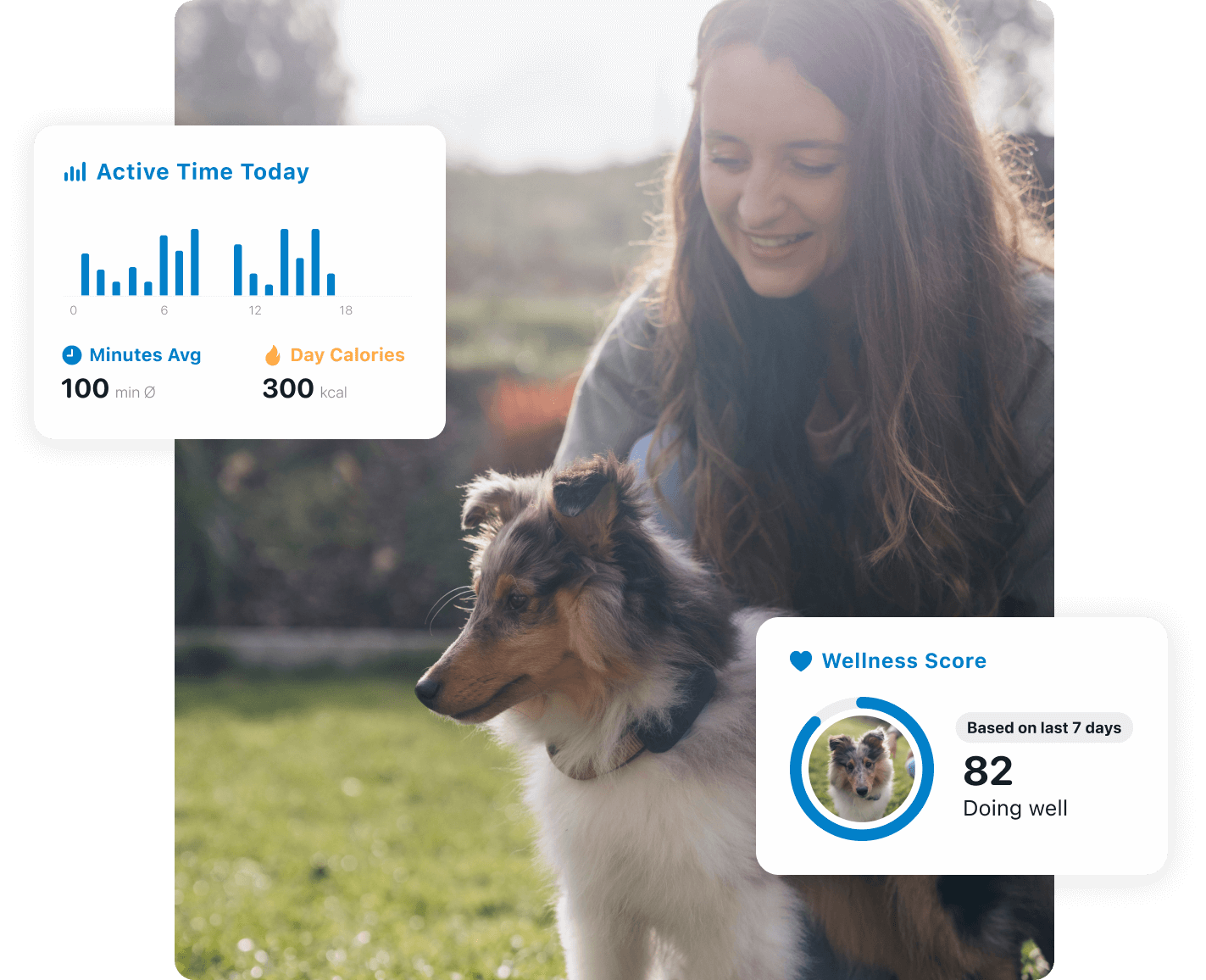How Tractive Health Alerts work
How Tractive Health Alerts work
Health Alerts are email notifications that let you know that your dog’s activity or sleep have shown unusual changes over a longer period. This is often a potential sign of a health problem. These alerts are especially useful in detecting issues early when your buddy is trying to hide their pain, or when their symptoms are almost invisible. That way, you can get them the care they need, and bring them back to happy and healthy as soon as possible.
Activating Health Alerts
Unlocking Health Alerts is easy. Just use your tracker day and night, for at least 12 hours – ideally even more. This helps us make sure we have enough reliable information to get a complete picture of your buddy’s usual activity levels, sleep patterns and daily routines.
The longer you keep the tracker on, the more accurate and helpful the alerts will be.
Types of Health Alerts
Types of Health Alerts
Common reasons for less activity
Arthritis & Joint Issues
Inflamed joints cause pain and limit movement. A leading cause is osteoarthritis, common in older and bigger dogs.
Lifestyle Changes
Your own routine can have a big impact on your dog’s activity. For example, if you’ve been too busy to go on walks recently.
Nagging Injuries
Some injuries, like a light sprain or a hurt paw pad, can be hard to spot – especially if your dog tries to hide their pain.

Common reasons for more disturbed sleep
Joint Issues & Sickness
Dogs are good at hiding pain, but waking up at night can be a giveaway. Or, they might be getting up to pee more, which can be tied to bladder or kidney issues.
Changes Where They Sleep
Home moves, season changes, loud noises at night can all disrupt your buddy’s night sleep. You can try to see if there’s a pattern that helps you find the cause.
Sleep Disorders
Difficulty breathing at night, also known as sleep apnea, can keep dogs up. And younger dogs might get active during their sleep due to REM Sleep Disorder.





